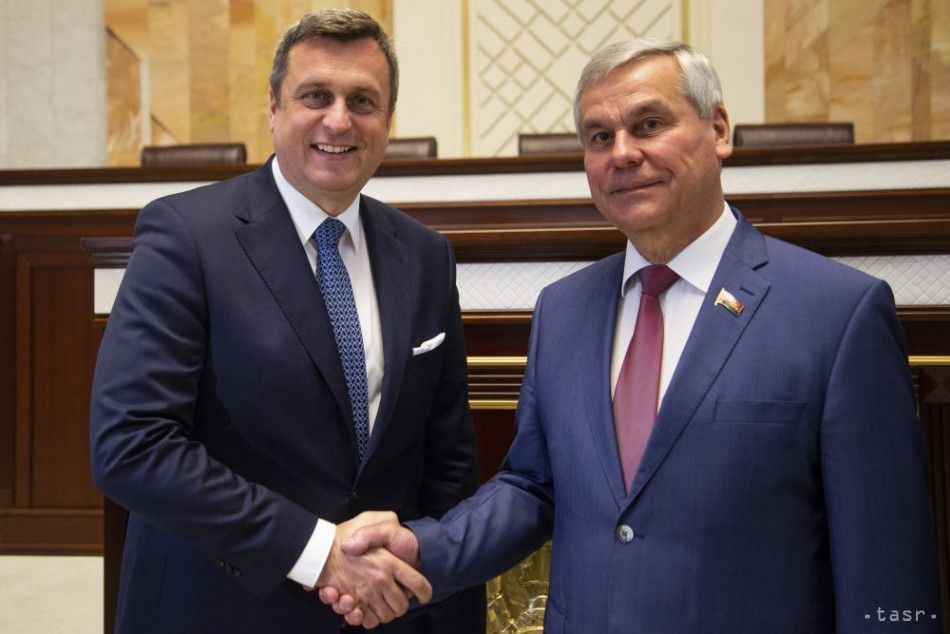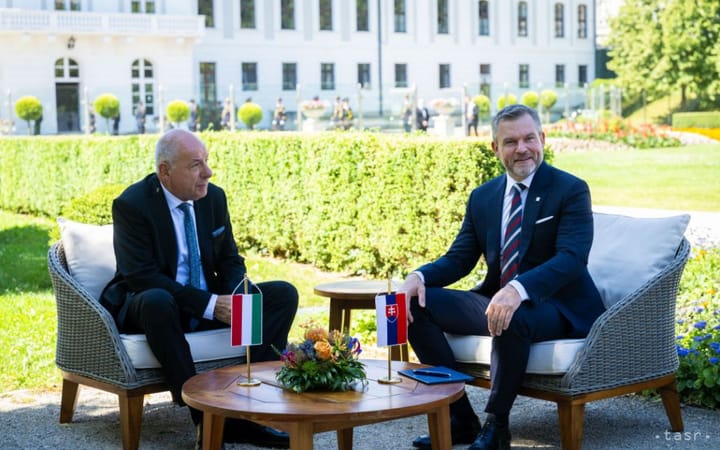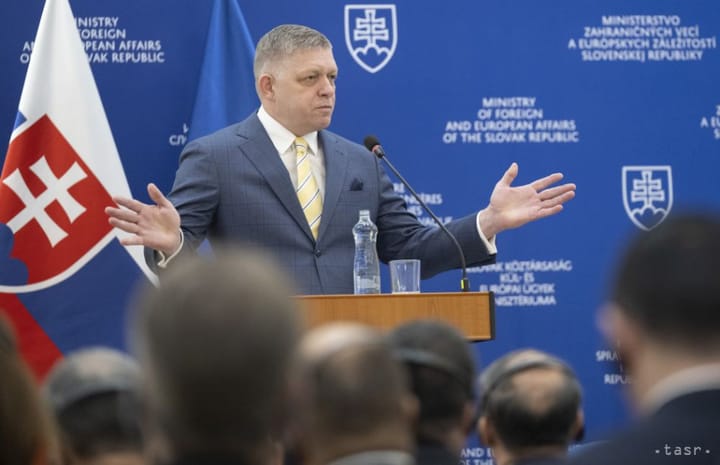Danko: Ukrainians Go to Poland, We'd Like to Have Belarusians

Minsk, June 3 (TASR-correspondent) – Belarus offers a potential for co-operation in a number of areas, in addition to the economy also in education and health, especially given that Slovakia will soon be lacking medical staff, Slovak National Party (SNS) leader and Parliamentary Chair Andrej Danko said after Monday’s meeting with Speaker of the Chamber of Representatives of the Belarusian Parliament Vladimir Andreychenko.
“With a smile, I say that when Ukrainians like Poland, we should rather look up at Belarusians and allow them to work or spread their education in our country,” Danko told a briefing.
Danko further said that he’ll be advocating the mutual recognition of diplomas in Slovakia and Belarus and will also address Education Minister Martina Lubyova (an SNS nominee) in this regard.
During the talks with the Slovak delegation, Speaker of the Chamber of Representatives of the Belarusian National Assembly Vladimir Andreychenko presented the ambition to achieve closer co-operation between Belarus and the Visegrad Four (V4) countries (the Czech Republic, Hungary, Poland and Slovakia). Danko said that Slovakia’s one-year presidency of the grouping ends in late June, however, he promised he’ll talk about this topic with his Czech counterpart Radek Vondracek, whose country takes over the V4 presidency in July.
Danko noted that during the Slovak presidency, there have been several extended negotiations of V4 countries at a parliamentary level. The extended format included in particular France, Germany and Benelux countries.
“It is important for the V4 to present itself more at a bilateral level, because after that time, when we had a problem explaining our attitude to migration, some of our EU partners started to be afraid of us,” said Danko, stressing that similar contacts with Belarus and also the Baltic states “have a meaning”.
The head of the lower house of the Belarusian Parliament further talked about the development of economic co-operation, pointing out the growing volume of foreign trade. In 2018, it reached $218 million, and is also showing a growing trend in 2019.



